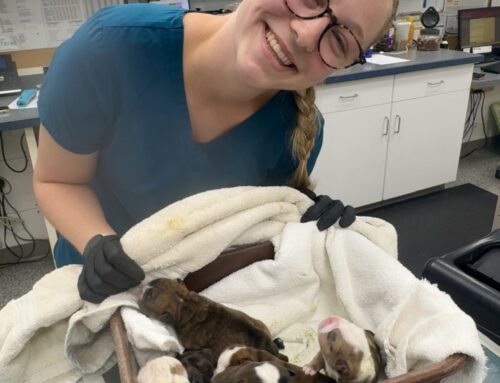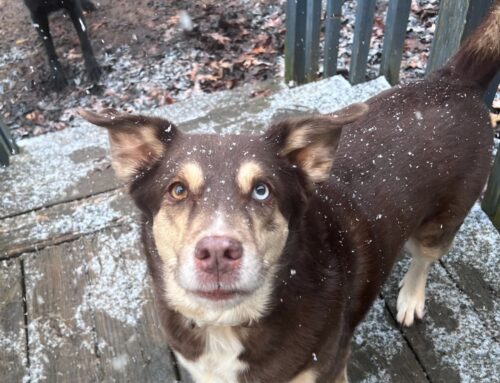 It’s happening. Your pet is getting old. The dog that has loyally stood by your side for years is beginning to grey in her muzzle and is moving a bit slower when she stands up from a lying position. Or your formerly fearless cat seems to be downright jumpy around strangers lately. What’s normal? How do you care for your old friend to ensure that he ages gracefully and comfortably? What are causes for concern? What can you expect, and at what point should you consult the vet?
It’s happening. Your pet is getting old. The dog that has loyally stood by your side for years is beginning to grey in her muzzle and is moving a bit slower when she stands up from a lying position. Or your formerly fearless cat seems to be downright jumpy around strangers lately. What’s normal? How do you care for your old friend to ensure that he ages gracefully and comfortably? What are causes for concern? What can you expect, and at what point should you consult the vet?
How old is a senior pet? Generally speaking, a dog or cat would be considered “senior” at age 7. We’ve all heard about dog years…and cat years, but a pet’s life expectancy depends on its breed and size. Yes, there are poodles that live to be 20 years old – and cats living to be in their teens are not uncommon. A baseline exam can determine if your dog or cat is considered senior. At Town N Country, we can assess your pet’s health and projected expectancy and advise you about breed specific age-related care.
What is a Geriatric Exam? More expansive than a standard physical check-up, an exam for a senior pet includes oral and rectal exams, an examination of eyes, ears and thyroid glands, a complete blood count, urinalysis and any other lab tests we might deem necessary for your pet’s specific needs.
Is it time yet? We recommend a twice yearly geriatric exam in order to vigilantly identify and treat any potential problems in the early stages. We’ll recommend the best diet, exercise program and any required medications for your senior pet.
Growing old together. Our aging pets face many of the same ailments that we do as we age. They may suffer from aching joints, a loss of sight, hearing or sense of smell, and a general lack of energy. Many of these problems may be alleviated or prevented by maintaining a healthy body weight. As our pets are less active, they burn fewer calories and may tend to put on weight. We’ll suggest a customized treatment plan for your older pet’s wellbeing.
At Town N Country, many of us have aging pets ourselves. We understand how much your aging pet means to your family. Dr. King has a special interest in senior care, and helping pets live more comfortably later in life. Call us today and allow us to develop a plan for your pet’s continued good health and happiness.





[…] So your first clue that your cat suffers from feline cardiomyapathy, the most common feline heart disease, could be when your vet detects a heart murmur, or a sudden paralysis of a hindlimb. Subtle symptoms like a reduced appetite or shortness of breath are easy to overlook or attribute to simply having a senior pet. […]
[…] Dr. Bolynn shared a picture of her dog enjoying the water. He’s 14 years old (that’s a senior pet!), but he’s still a puppy at heart and can’t get enough swim […]
[…] Graham writes about senior pet care and more for Town N Country Animal Hospital in Burlington, […]